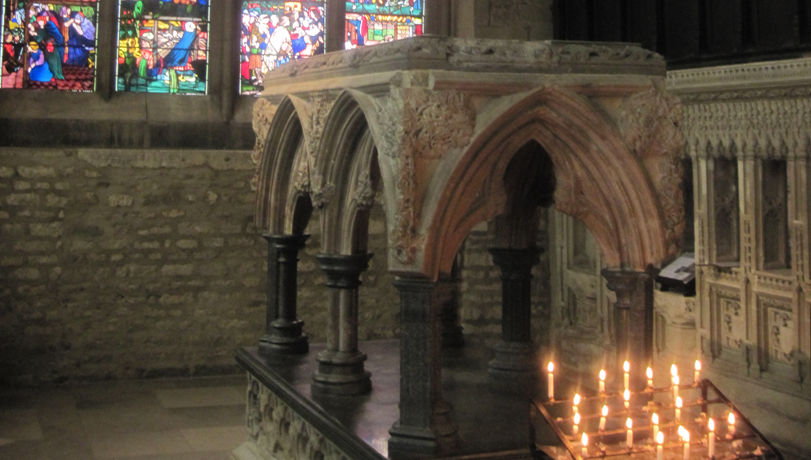John of the Cross was born into a poor Jewish family, similar to his contemporary and co-founder St. Teresa of Avila, in the 1540s near the Town of Avila in Castille, Spain. For the first part of his life, John studied in colleges and universities, including that of Salamanca, across Spain and became an acclaimed scholar before he met the humble Teresa at Avila in 1567. The two saints began the beginning of a movement that would see the foundation of reformed Carmelite houses all over Spain and that sought a more personal, contemplative, and humble relationship with Christ when they made the journey from Avila to Valladolid to found a new house in 1568. In the path of the nun and friar lay an old argument within the Carmelite order in Spain which forbid each side from establishing houses in the territory of the other. John and Teresa founded several houses in the region called Andalusia, in southern Spain, where the 'calced' or 'observant' Carmelites, who rejected the reforms of Teresa's 'discalced' order and the disagreement was settled but only after John spent some time in a Spanish prison. John had many layers within his character. He was very wise and acted not only as the prior of many Carmelite friaries but also acted as a spiritual director to several of Teresa's nunneries. Many of the treatises and teachings of his come from his instruction to these nuns and to his own friars but also from his time in prison, where he composed and memorized poetry which he later set down in writing. He was extremely pious, especially in his devotion to the celebration of the mass. Though learned, he was approachable by any person of any status and in fact had a special affection for the poor and so earned the title: "patron of the afflicted." After he died on December 14, 1591 at 49 years old, he was buried in one of his friaries at Segovia. For his humility, devotion, charity to the dispossessed, and deep knowledge and teacher of the love of God, he is venerated as a saint in both the Roman and Anglican Churches.
John's perseverance in remaining entrenched in his and Teresa's movement back towards religious humility is the same quality of the martyrs. The Church today must resist accusations from secular society that it is arcane and too narrow-minded for modern society with an answer in the form of St. John of the Cross: humility and charity, comfort and affection for the dispossessed is neither arcane nor narrow minded. St. John of the Cross and St. Teresa are examples of what the Church stands for...in action as well as belief. The Church needs to re-strengthen its relationship with society, Christ's relationship with society, by reviving its St. Johns; its purpose wholly dedicated to the bearing of the cross for the good of the world.
Collect:
Almighty God, the judge of all, who gave your servant John of the Cross a warmth of nature, a strength of purpose and a mystical faith that sustained him even in the darkness: shed your light on all who love you and grant them union of body and soul and the same courage to take up the task of bearing the cross of your Son, Jesus Christ, who with you and the Holy Spirit, lives and reigns, One God, forever and ever. Amen
 |
| The Virgin of Mt. Carmel with Sts. Teresa and John of the Cross |


No comments:
Post a Comment